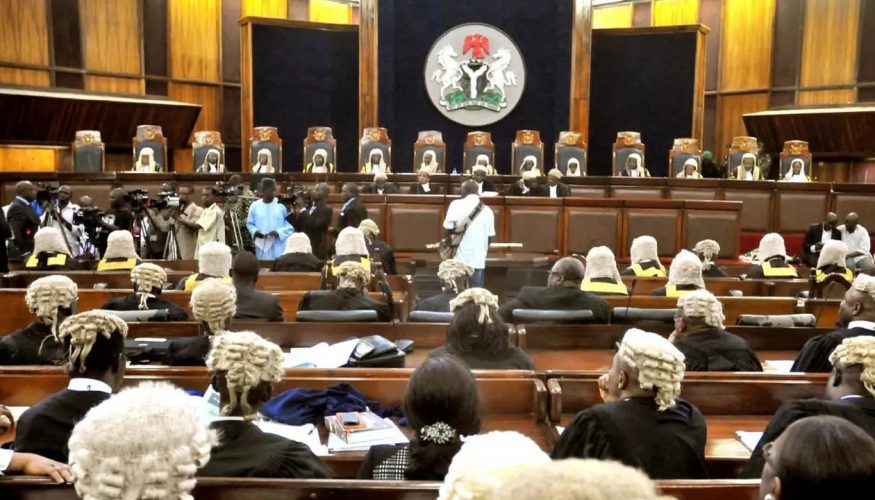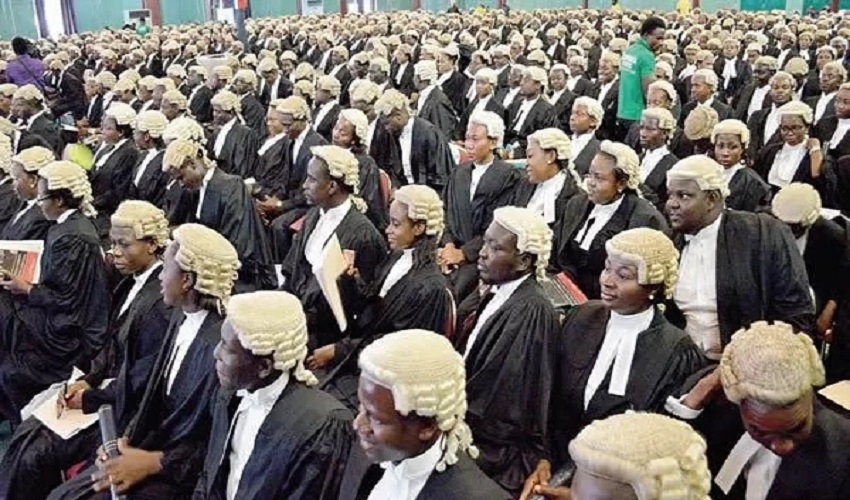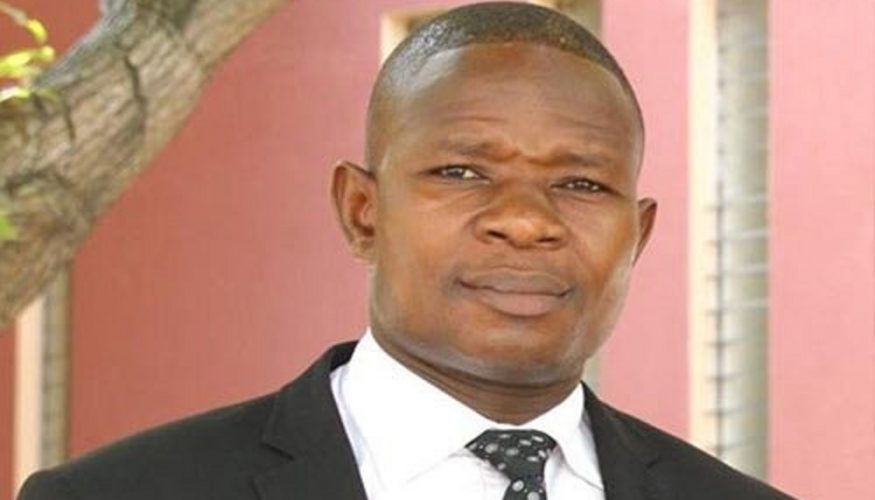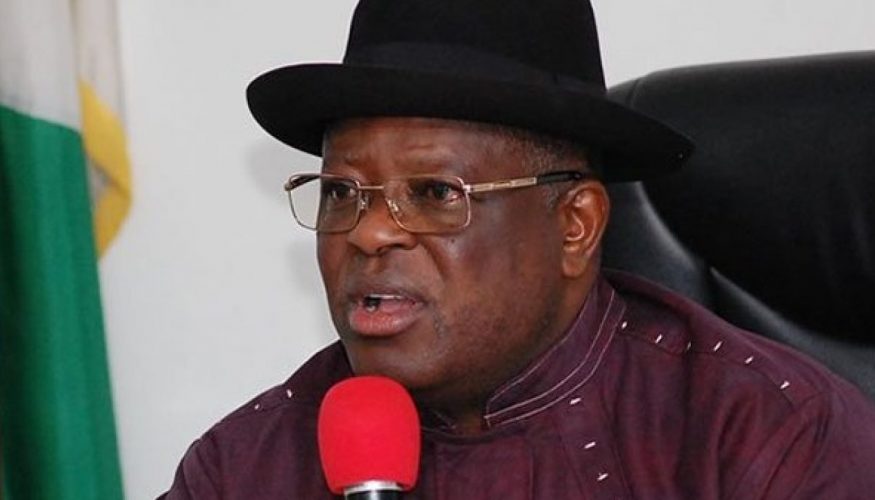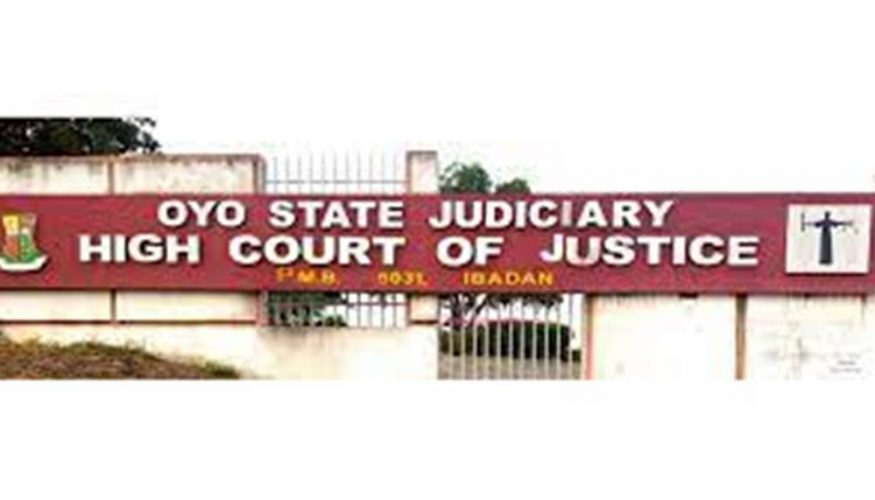HIJAB JUDGEMENT: ‘MALCOLM OMIRHOBO IS IMPUGNING SUPREME COURT,’ SAYS LAWYER
SUPREME COURT AND THE HIJAB JUDGMENT
By Abdulrasheed Ibrahim, Notary Public
At last the Supreme Court of Nigeria has laid to rest the controversy over whether a female Muslim Student in public primary or secondary school has the right to adorn her hijab over her school uniform. The Apex Court on 17th June 2022 affirmed the decision of the Court of Appeal stating that it is part of her constitutional right to the freedom of thought, conscience and religion to adorn it whether in private or in public without being harassed or discriminated against. This case was between a female Muslim minor and the Lagos State Government who through her father instituted the action at the High Court of Lagos State in 2014 seeking to know under the law whether she is entitled to that right or not. When the High Court answered the question in negative and she was aggrieved by that decision, she proceeded to the Court of Appeal to exercise her appellate right which right the appellate court gave her by setting aside the decision of the Lagos State High Court taking away that right. The Lagos State Government on equally being dissatisfied proceeded to the Supreme Court to challenge the decision of Court of Appeal recognizing that right. The Supreme Court in its majority decision affirmed the position of the Court of Appeal that the female Muslim student is entitled to that right.
The reaction to this latest the Supreme Court Judgment (Lagos State Government Vs. Abdulkareem) by some lawyers who ought to know better has been very astonishing. The camp being led by Chief Malcolm Omirhobo who claims to be a human rights lawyer has not only condemned the judgment and the Justices of the Supreme Court for performing their judicial duties, he has also displayed a kind of comedy within the Supreme Court premises in Abuja where he put on what he called his spiritual mode of dressing combined with the lawyer’s outfit. The lawyer in his earlier condemnation of the Supreme Court judgment stated as follows among others:
“….It is sad and disturbing that the Justices of the Supreme Court failed to see how our public schools will look if students from white garment Church family background like Celestial Church of Christ and Cherubim and Seraphim Church sew their uniform in sutana style covering all their bodies from the neck to toe with cap to march and go to school barefooted because it is a Christian injunction and an act of worship required of them?….I appreciate the fact that the judgment of the Supreme Court is final and must be complied with nevertheless I find solace in the fact that the Supreme Court do reverse her decisions when it finds it expedient to do so especially after it has erred in an early decision and this case is one of such occasion…. ”
From Chief Omirhobo’s above assertion, he claims not only to be more knowledgeable than the learned Jurists of the Supreme Court but that he possesses the unseen knowledge of what the judgment could lead to in the public schools? Every lawyer that has serious knowledge of law will agree that it is part of our jurisprudence that it is not the duty or business of the court to go outside the facts and issues place before it to resolve. This self- styled human right activist needs to be asked whether (to borrow from his words) any member of “white garment Church family background like Celestial Church of Christ and Cherubim and Seraphim Church” has approached any court in the land to complain of being denied or disallowed to wear “their uniform in sutana style covering all their bodies from the neck to toe with cap to march and go to school barefooted because it is a Christian injunction and an act of worship required of them ” ? It is not the business of any court of competent jurisdiction including the Supreme Court to deal with issues that are not placed before it. If there was no such complaint before the Supreme Court, why did the Chief Omirhobo expect the Apex Court to deal with the issue not before it? I dare say that Chief Omirhobo’s assertion is nothing but an argument that does not hold water. To further demonstrate his sentiment and hypocrisy, he resorted to playing to the gallery by walking into the Supreme Court premises few days later barefooted and in lawyer outfit combined with juju worshipper’s attire and went to sit alone in the courtroom seeking for media attention.
If the scenario he displayed was truly to make the Supreme Court to reverse its decision that was not the best way to achieve that. He should have done that when he actually has a case listed on the cause list of the Supreme Court or any other court in the country to announce his appearance with such attire and see whether he will be granted audience by the court. In the alternative, he should have arranged some of his children or grand children or some of his clients’ children to put on traditionalists’ attires and proceed to school to see if the school authorities will allow them into the school premises or be allowed into the classrooms. If they are disallowed, he can easily file action in court ( as done the young Muslim lady whose right to wear hijab has been affirmed by the Apex Court), then Chief Omirhobo and his clients can travel along the same route so as to prove a strong point that their children equally have the constitutional right to wear such attires to the school since he has asserted that the Supreme Court must reverse itself. Chief Omirhobo needs to make a move to develop our law on the rights of the traditionalists to where their attires with their school uniform. If the late Alhaji AbdulganiyAdetola Kazeem (SAN) of blessed memory could set the ball rolling to achieve this on behalf of female Muslim students, I see no reason why Chief Malcolm Omirhobo cannot initiate similar move on behalf of the traditionalists willing to exercise their fundamental rights under the law.
When Chief Omirhobo was enacting his drama at the Supreme Court and was being praised, clapped for by some lawyers while at the same time getting the attention of the media including that of the social media, while the same media had earlier downplayed and remained mute on the hijab’s Supreme Court judgment, my reaction to the drama was as follows:
“I am of the view that the lawyer got it wrong in the sense I once expressed somewhere that a Muslim woman that adopts hijab as part of her dressing does not make it strictly ceremonial or worship attire as she adorns it anywhere she goes. She uses it to pray, to the school, market, office or work place. I believe the lawyer will be making a very good point if he makes it an habit henceforth to adorn this his religious dressing anywhere he goes as Muslim lady that adorns it does and that he should not restrict it to the court as he does here.”
As if the TVC News caster at 10 got my position right, similar question was put to Chief Omirhobo in an interview that same night on the television where he has done away with his earlier juju attire, but his response was more of incoherence than being rational. The question I have been those that are opposed to the hijab was to show me how did the women during the biblical time dressed, but am yet to get any response to that. We now live in a country where the religious tolerance has gone on flight and unfortunately those human rights activists in the legal profession that ought to promote mutual understanding and respect are the ones beating the drum of conflict and confusion. Why must some people develop unnecessary headache and high blood pressure merely because a citizen is granted the right to adorn her simple head cover as part of her fundamental rights? How does allowing a female Muslim student the right to use her hijab by virtue of Section 38 extend to the spurious argument being canvassed by the self-styled human rights activists that the Supreme Court has gone against Section 10 of the Constitution of the Federal Republic of Nigeria by adopting Islam as a state religion? The incessant and loud attack on Hijab or anything Islamic is one of the great proofs of the authenticity of Islam as clearly states in its scripture that certain groups of people will never be pleased with Muslims until they abandon their faith and follow the way of those other people. The scriptural position in Islam is that many attempts will be made to put off the light of Islam, but the Almighty Allah that sent His Messenger (Muhammad) to deliver that message will not allow that to happen.
Section 10 of the 1999 Constitution (as amended) which provides that: “The Government of the Federation or of a State shall not adopt any religion as State Religion” remains one of the Constitutional provisions that has been grossly misinterpreted even by lawyers as related to the true meaning of the word “Secular or Secularism” as often canvass by some people as if the country should have nothing to do with religions where many of them exist. If that position is valid, why do we have religious organizations of various sects springing up here and there even taking over premises and properties of collapsed industries and companies? If Nigeria is truly a secular state, why are the Nigerian governments at various levels spending heavily on religious activities including building of Mosques and Churches or Chapels in various governments houses and equally sponsor both Christians and Muslims to the pilgrimage in Israel and Saudi Arabia? Why do the governments declare public holidays for the celebration of the religious ceremonies and official government ceremonies are commenced with religious opening prayers? Does government allowing all these mean that it is given priority to some religions than other religions in a country which is multi-religious in nature? The Constitution does not say religions should not exist but that the Federation or a State should not adopt a particular religion as State religion. Those self-styled human rights activists need to tell us where the Supreme Court in the judgment under review declared Islam as the State religion simply because the Apex Court has affirmed the rights of an individual under the Section 38 of the Constitution.
Despite their alarming insistence of Nigeria being a secular state, it is the same set of the self-styled human rights activists that would maintain that the political parties must balance the equation of Muslim/Christian ticket in their search for the political power and that any attempt to bring about a Muslim/Muslim ticket will amount to another form of “Jihad” to use their own words. Since the return to democracy in 1999, the equation has been Muslim/Christian or Christian/Muslim, but where has that taken the country to? Has that solved the nation’s economic and security problems? To what extent have those leaders protect the lives of the Christians and Muslims talk less of the traditionalists against the menace of Boko Haram, Bandits, Kidnappers and other criminals? Patriotic Nigerians regardless of their tribal and religious affiliation should be clamouring and praying for good leaders that are upright, competent and have the foresight to turn round what this nation is blessed with to the advantage of Nigerians rather buying into the spurious propaganda of the religious chauvinists.
Multi-tribal and multi-religious nature of a nation should always be to the advantage of such nation but unfortunate in this part of the world such is used to her disadvantage. For instance the countries like the United States of America (USA) and the United Kingdom (UK) from where we borrowed some of the political and constitution system have to some extent gone beyond most of the things our so-called human rights activists here are using to create confusion among the populace. If those countries have changed their attitude to the use of hijab and have recognized it as the fundamental rights of those that desire it, why must our self-styled human rights activists here behave as if Nigeria is still in the Stone Age? The opposition on their part to hijab did not start today but it reached the peak during the Call to the Bar ceremony of a female Muslim lawyer, Amasa Firdaos who insisted on adorning her hijab for the ceremony and in that struggle she lost that year of call until the wisdom prevailed and she eventually had her way.
Similar scenario repeated itself in Ilorin, the Kwara State capital where in violation of court order that the female Muslim students have the rights to wear hijab on their school uniform, the Christian Association of Nigeria (CAN) that was a party in the suit mobilized it members against the order of the court by disallowing the students entry into the public school rather than trying to pursue their appeal against the Court of Appeal decision at the Supreme Court. In a civilized nation, party that is aggrieved by a judgment of the court will appeal against it rather than taking law into their hands. In the latest judgment under review, the Supreme Court is the final court in the land. It should be the duty of every serious lawyer to advise people to respect that verdict rather than what the likes of Chief Malcolm Omirhobo are doing by going about disparaging the Justices of the Apex Court after discharging their judicial duties which to me amount nothing but gross indiscipline and disrespect to the Supreme Court as an institution. I hereby challenge Chief Omirhobo to again appear in such attire before any court of competent jurisdiction in the country one of these days. Since another lawyer has boastfully said he would appear in his Juju attire before a court, I will be very glad to see him doing that as our law needs to be developed. The challenge still stands and let them bell the cat!
NOTE: Anyone is at liberty to disagree with my above submissions as I will surely appreciate a balanced, fair and objective rebuttal.
27th June 2022
- Abdulrasheed Ibrahim is a Notary Public
To join our Telegram platform, please click here
COPYRIGHT 2022 CITY LAWYER. Please send emails to citylawyermag@gmail.com. Join us on Facebook at https://web.facebook.com/City-Lawyer-Magazine-434937936684320 and on TWITTER at https://twitter.com/CityLawyerMag. To ADVERTISE in CITY LAWYER, please email citylawyermag@gmail.com or call 08138380083. All materials available on this Website are protected by copyright, trade mark and other proprietary and intellectual property laws. You may not use any of our intellectual property rights without our express written consent or attribution to www.citylawyermag.com. However, you are permitted to print or save to your individual PC, tablet or storage extracts from this Website for your own personal non-commercial use.
